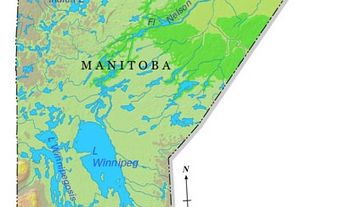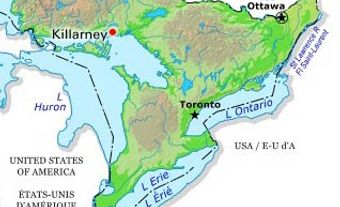Morden, Manitoba, incorporated as a city in 2012, population 9,929 (2021 census), 8,668 (2016 census). The Town of Morden is located 104 km southwest of Winnipeg and 20 km north of the international boundary with the U.S. Morden is situated in Treaties No. 1 Territory and on the traditional lands of the Anishinaabe, Cree, Oji-Cree, and Dakota Nations. The Métis Nation, notably the Red River Métis, have a historical and ongoing presence on this land.
History
European and Métis explorers, fur traders and bison hunters historically used the area's natural resources. Ontarians homesteaded here in 1874; Jewish and Mennonite settlers followed. The Morden townsite - named for Alvey Morden, an early settler - was established by the Canadian Pacific Railway in 1881-82. By 1885, a thriving business community had emerged.
Economy
The region is well suited to agriculture. A federal research station at Morden is the main prairie centre for horticultural and special crop research. This research hub plays a role in advancing agricultural practices in the region. In addition to its agricultural significance, Morden is the primary service centre for the region and contains a mixture of light industries.
Culture
Morden is known for its natural and historical heritage. The area contains fossils of marine reptiles and the ancient mound-builder sites. The fossils are the focus of the Canadian Fossil Discovery Centre, which includes an extensive collection featuring life in the Western Interior Seaway and hosts the most comprehensive collection of marine reptile fossils in Canada.
Additionally, Morden hosts the annual Corn and Apple Festival and the Manitoba Baseball Hall of Fame.
Morden is the birthplace of Canadian musician Loreena McKennitt.

 Share on Facebook
Share on Facebook Share on X
Share on X Share by Email
Share by Email Share on Google Classroom
Share on Google Classroom



